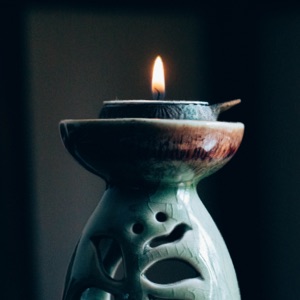PMS
There are many ways to categorize the more than 150 symptoms of PMS. This chart is adapted from Dr. Elizabeth Vliet and refers to what she calls “the seven PMS clusters.”
- Affective: Depression, irritability, anxiety, anger, tearfulness, panicky feelings
- Behavioral: Impulsive actions, compulsions, agitation, lethargy, decreased motivation
- Autonomic: Palpitations, nausea, constipation, dizziness, sweating, tremors, blurred vision, hot flashes
- Fluid/Electrolyte: Bloating, water-weight gain, breast fullness, hand & foot swelling
- Dermatological: Acne, oily hair, hives and rashes, herpes, allergy outbreaks
- Cognitive (Brain): Decreased concentration, memory changes, word retrieval problems, fuzzy thinking, foggy-brain
- Pain: Migraines, tension headaches, back pain, muscle and joint aches, breast pain, neck stiffness
These symptoms are the result of hormonal shifts that are related to the luteal (postovulatory) phase of a woman’s cycle. They occur from one day to two weeks prior to menstruation and then stop when menstruation begins. The symptoms a woman experiences may change each month or they may have a regular pattern which they associate with PMS. Some women may be more likely to experience PMS because the symptoms are related to the way hormonal changes affect their bodies. The stages in a woman’s life that most effects her hormone levels are:
- During puberty
- After hysterectomy
- After pregnancy
- During menopause
- After starting birth control pills
- After tubal ligation
- Life changes such as these are usually difficult emotionally and physically by themselves but become intensified by the onset of PMS symptoms. PMS can affect a woman’s relationships, productivity, and their comfort with their own bodies.
How can Chinese Medicine and Acupuncture help PMS?
Acupuncture offers a natural approach to treating PMS and it is a low-cost option for a woman that produces virtually no side effects. A November 2002 study in the medical journal Archives of Gynecology and Obstetrics showed that the success rate of acupuncture in treating PMS symptoms was 77.8% whereas it was 5.9% in the placebo control group. Studies show promising data that acupuncture affects the menstrual cycle by having a neuroendocrine affect on the body. This means that the different combinations of acupuncture points play a role in the release of hormones responsible for regulating the cycle. By establishing a regular cycle and balancing the many hormones involved, the PMS symptoms decline. The symptoms that are caused by high levels of estrogen in the luteal phase of the cycle will disappear as the progesterone and estrogen levels become more balanced and regular with each cycle.
How many treatments will I need?
PMS responds very well and very quickly to acupuncture and Chinese herbal medicine. Lessening of symptoms is usually seen within the first month of treatment and then improvement continues and is maintained over successive menstrual cycles. It is usually recommended to come once a week for the first menstrual cycle and then a patient can drop down to less treatments based on their response. Herbal medicine may also be a part of treatment for PMS.
What other tools am I given to ensure my treatments are effective?
While acupuncture and herbs can quickly resolve the PMS symptoms initially, in order to sustain the positive results of treatment some lifestyle and diet modifications may be in order. PMS is caused by an excess or sensitivity to estrogen in the body. Some foods can dramatically increase the symptoms of PMS such as soy products, alcohol, and sugar. It will not be a goal for you to maintain a restrictive diet; however some smart, healthy changes can make a world of difference in your hormone balance. It is also important to make sure you have a complete multivitamin supplement and good sources of A, B, C, calcium and magnesium. Exercise has a profound affect on our hormones and it activates the production of endorphins, a natural feel-good chemical in our bodies. In Chinese medicine, exercise is said to keep the qi moving. When our energy, or qi, is stuck we will feel tired and irritable and often experience pain, depression and PMS. Your acupuncturist will have a detailed look at your lifestyle and diet and make suggestions accordingly.


